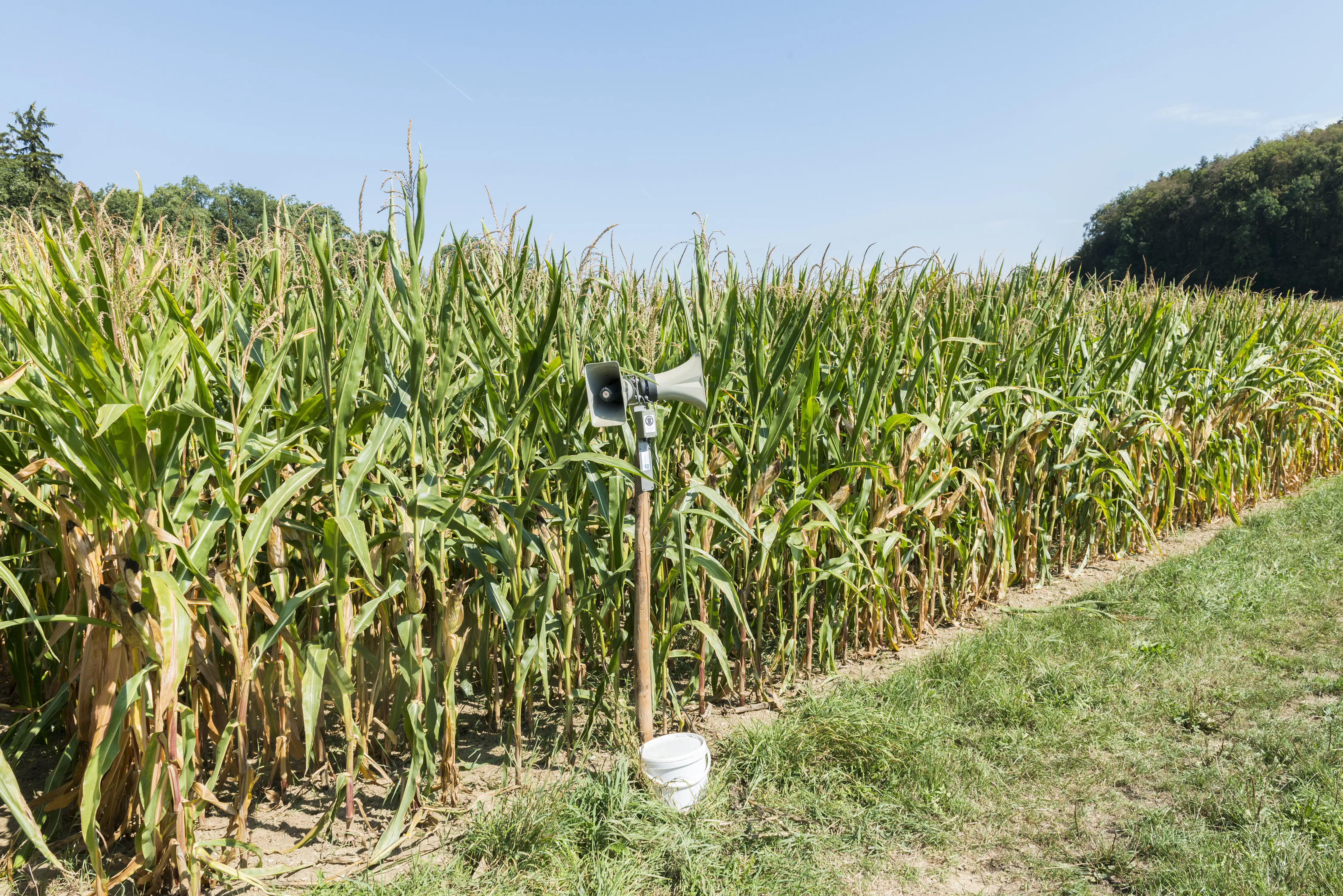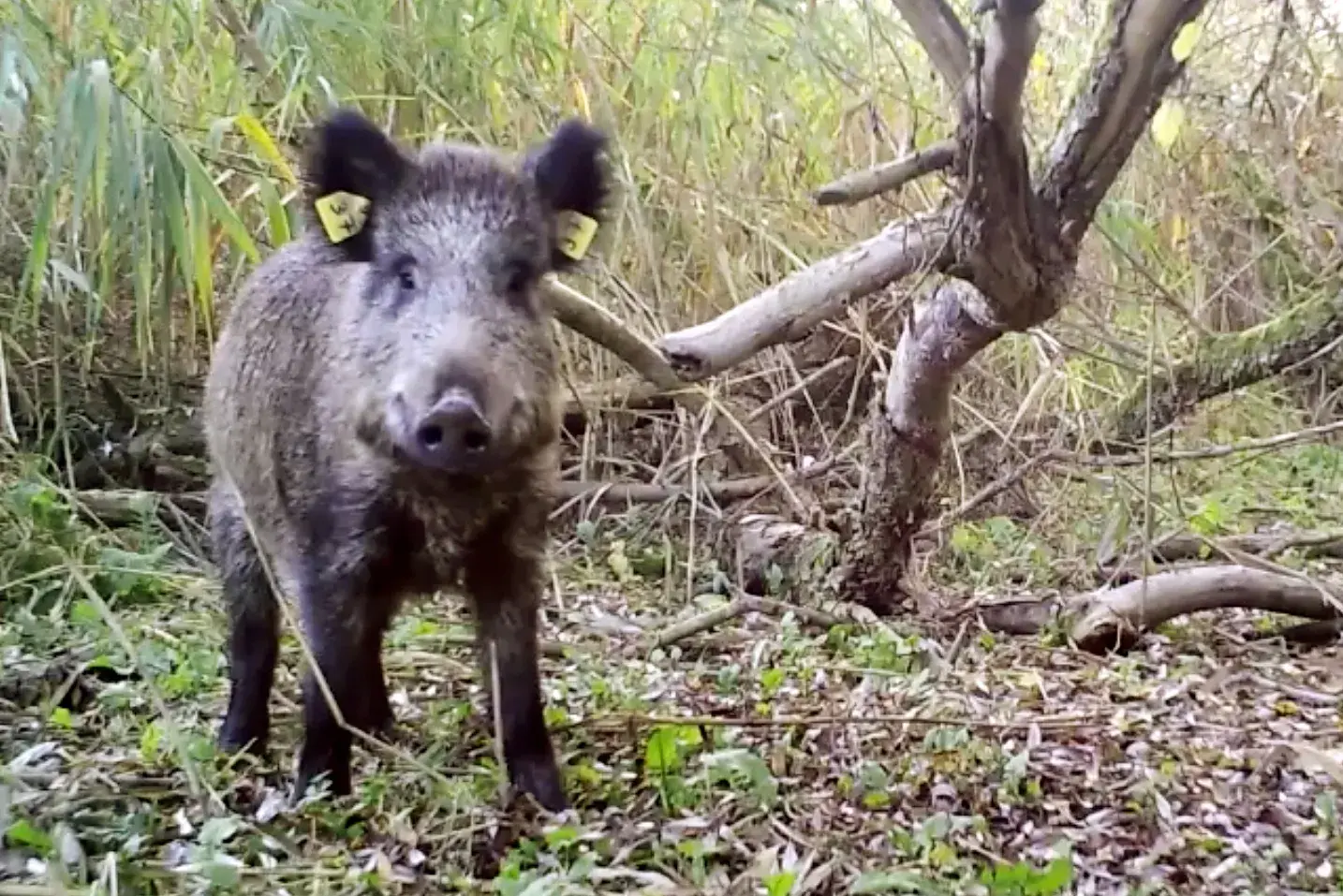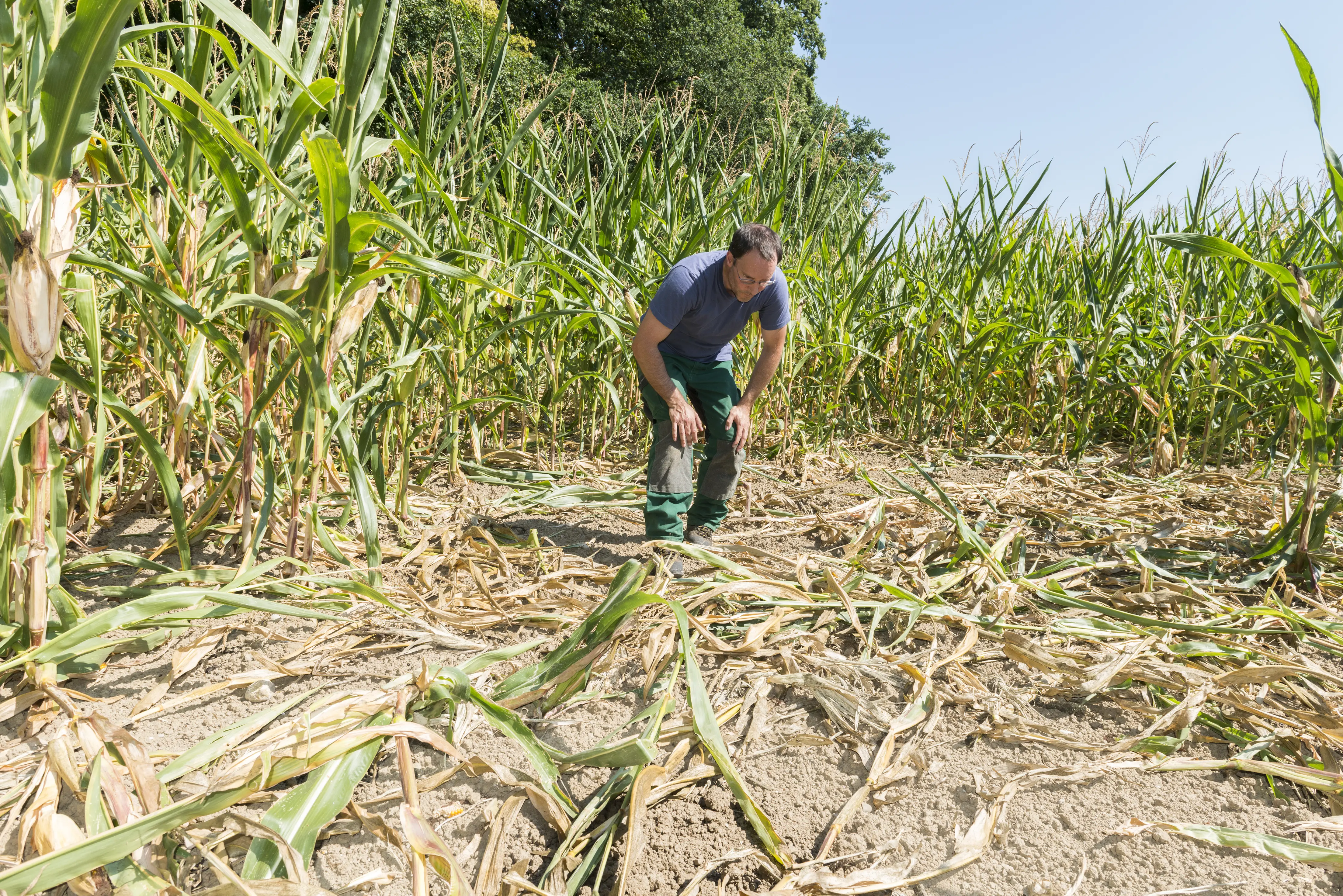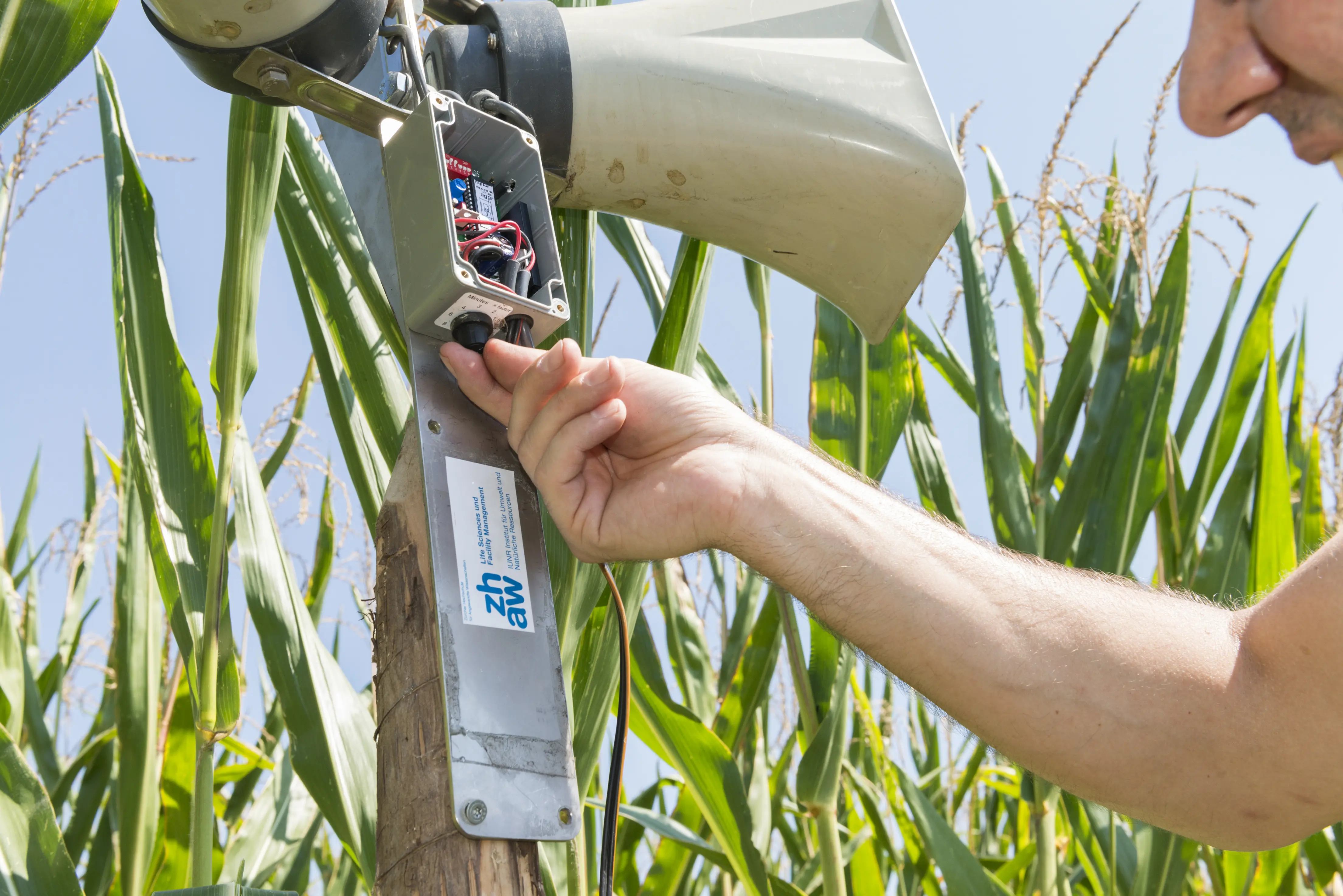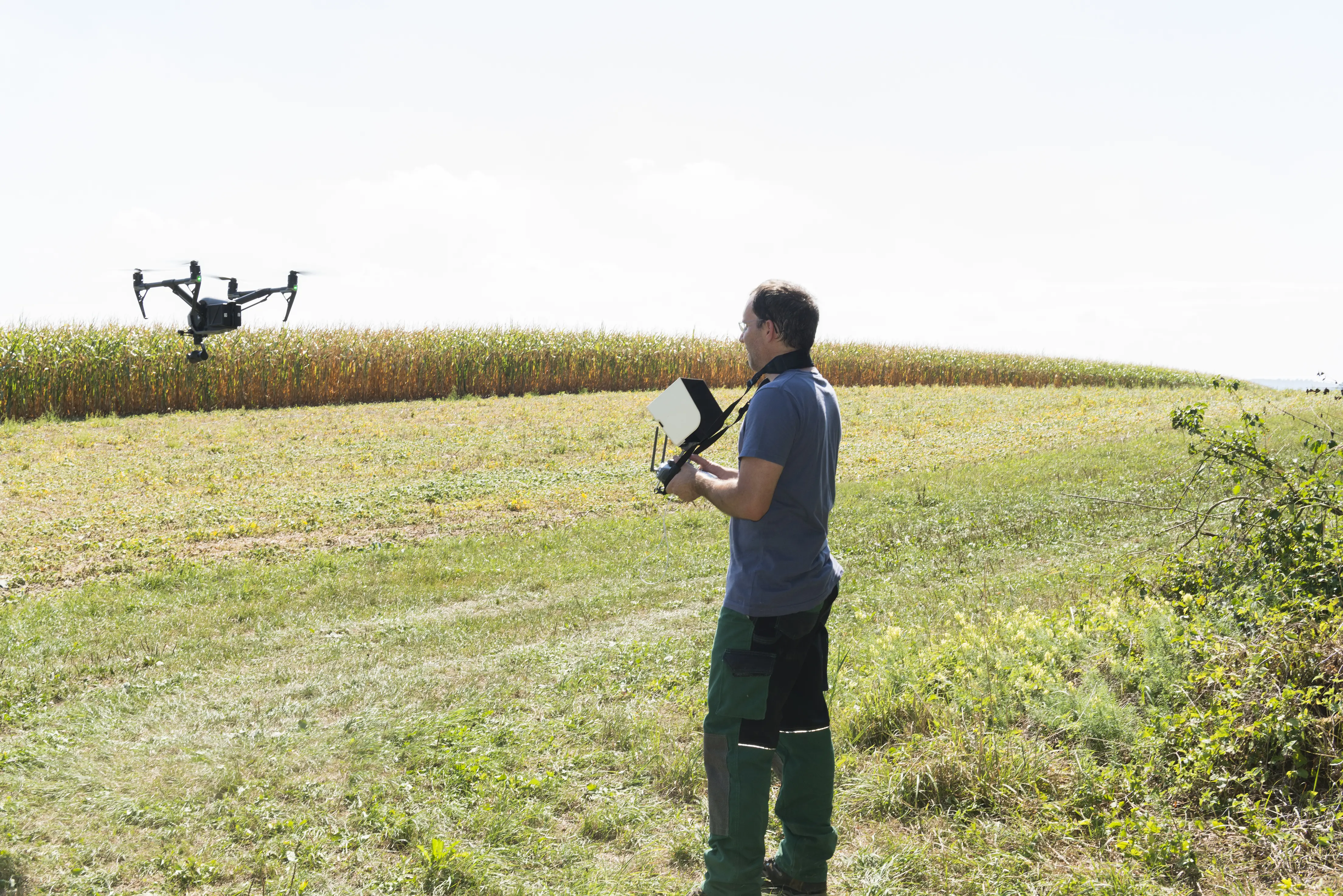Using an acoustic signal to prevent wild boars from damaging crops
ZHAW researchers have developed an acoustic system to keep wild boars out of agricultural areas – and prevent them from damaging crops. The new deterrent has been tested and weighed up against conventional preventive measures. The findings are instrumental in promoting sustainable wild boar management.
The acoustic deterrent developed at the ZHAW uses recordings of alarm and warning calls made by wild boars to keep the animals out of crop fields. Other sounds that wild boars associate with danger have been added to increase randomness in the system. Previous measures to deter wild boars have often proved ineffective, complicated and expensive; the ZHAW researchers therefore decided to test two traditional deterrents – electric fencing and culling tactics – in addition to the new system. The three methods were evaluated not only in terms of the damage measured but also in relation to the animals’ behavioural patterns. To do so, the researchers caught and tagged wild boars from three different areas: the Fanel Nature Reserve at Lac de Neuchâtel, the Klingnau reservoir and the upper Frick valley. Of those animals, 36 were equipped with GPS-GSM collars, allowing the research team to document their movement and ranging patterns. In addition, damage to crops was documented using aerial photographs captured by drones. Based on the findings, a sustainable management of wild boars can be developed.
Millions of francs in damage
Over the past several decades, both the unusually high rate of propagation and the abundant food supply have led to an increase in Switzerland’s wild boar population – a trend that shows no sign of abating. And the damage the animals cause has risen with their growing numbers. «We still don’t know nearly enough about wild boars, but we do know they are intelligent and that they adapt easily and can evade hunters,» says Stefan Suter from the ZHAW research group for Wildlife Management. An additional obstacle is that hunting wild boars is either prohibited or difficult in a variety of areas – for instance in water and bird reserves, nature conservation areas, in cities and where hunting is banned. Since 2013, Suter has been seeking new or improved methods of keeping the animals out of maize, potato, rapeseed and other crop fields, and he believes that the new deterrent will prove useful. The device consists of two battery-powered loudspeakers with a control box that sends random sound combinations in intervals of varying length. An integrated light sensor turns the device on at sunrise and off at sunset.
No single method is wild-boar-proof
The comparison study shows that no single preventive measure tested can offer absolute protection. Nevertheless, the damage is significantly smaller in fields where such methods are used compared to fields with unprotected crops. «With the acoustic system, we now have an additional preventive measure that is flexible and intelligent,» says Suter. It is especially useful in the critical periods after sowing and when maize and wheat are in an early ripening stage (milk maturity).
Exerting greater pressure through hunting also raises the effectiveness of the preventive measures. For instance, when a young member of a wild boar herd is culled, the other animals will avoid the area in future. Despite keeping the animals away from crop fields where the culling took place, this method doesn’t drive the animals permanently out of the forests or keep them away from agricultural areas. Electric fences can also be effective in keeping wild boars out of fields, but only if they are well built and regularly maintained.
Hunting methods not sufficient
Stefan Suter points out that hunting methods can only form part of successful wild boar management – and that a holistic approach is necessary. Additional preventive measures are important as they help to make it more difficult for the animals to gain access to nutrient-rich crops, which in turn helps to slow population growth. «The compensation that the cantons pay to farmers for damage caused by wild boars is effectively a pig breeding strategy. If damages are paid out, there is no motivation to find ways to prevent the animals from entering fields,» says Suter, adding that hunting methods wouldn’t change this either. In areas greatly affected by the high wild boar population, it would also be useful to introduce crops that wild boars have an aversion to, for instance Sudangrass or the cup plant. «Forward-thinking farmers have already begun planting these species. Farmers who are prepared to take a risk and try something new should also receive support,» Suter says with conviction.
Downloads
- News release (in German) (PDF 229 kB)
- Final report (in German) (PDF 4.87 MB)
- Image of acoustic deterrent, landscape view (JPG 12.62 MB)
- Image of acoustic deterrent, portrait view (JPG 9.21 MB)
- Detail of acoustic deterrent, portrait view (JPG 7.01 MB)
- Detail of acoustic deterrent, landscape view (JPG 7.08 MB)
- Image of wild boar (JPG 1.33 MB)
- Image of wild boar damages, landscape view (JPG 13.58 MB)
- Image of wild boar damages, portrait view (JPG 10.68 MB)
- Image of drone, portrait view (JPG 8.46 MB)
- Image of drone, landscape view (JPG 10.44 MB)
- Image of drone and acoustic deterrent (JPG 12.11 MB)
Contact
Dr. Stefan Suter, Research Group for Wildlife Management, ZHAW School of Life Sciences and Facility Management, phone 078 716 70 87, email stefan.suter@zhaw.ch
Kathrin Reimann, ZHAW Corporate Communications, phone 058 934 75 75, email medien@zhaw.ch
